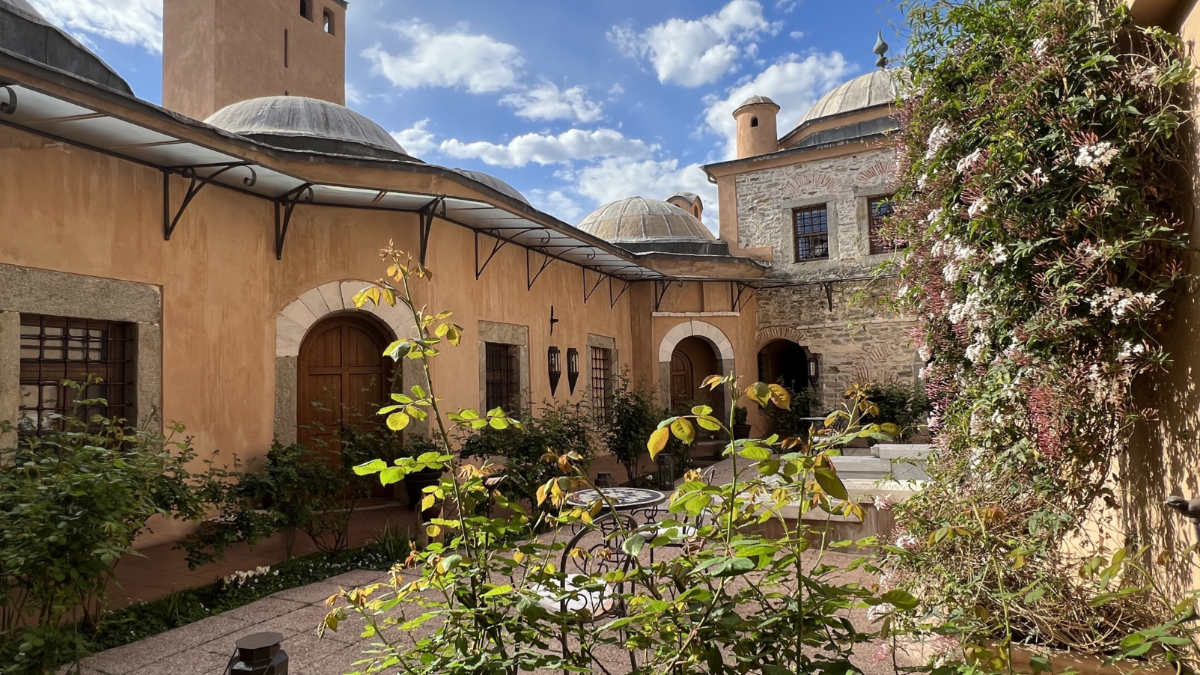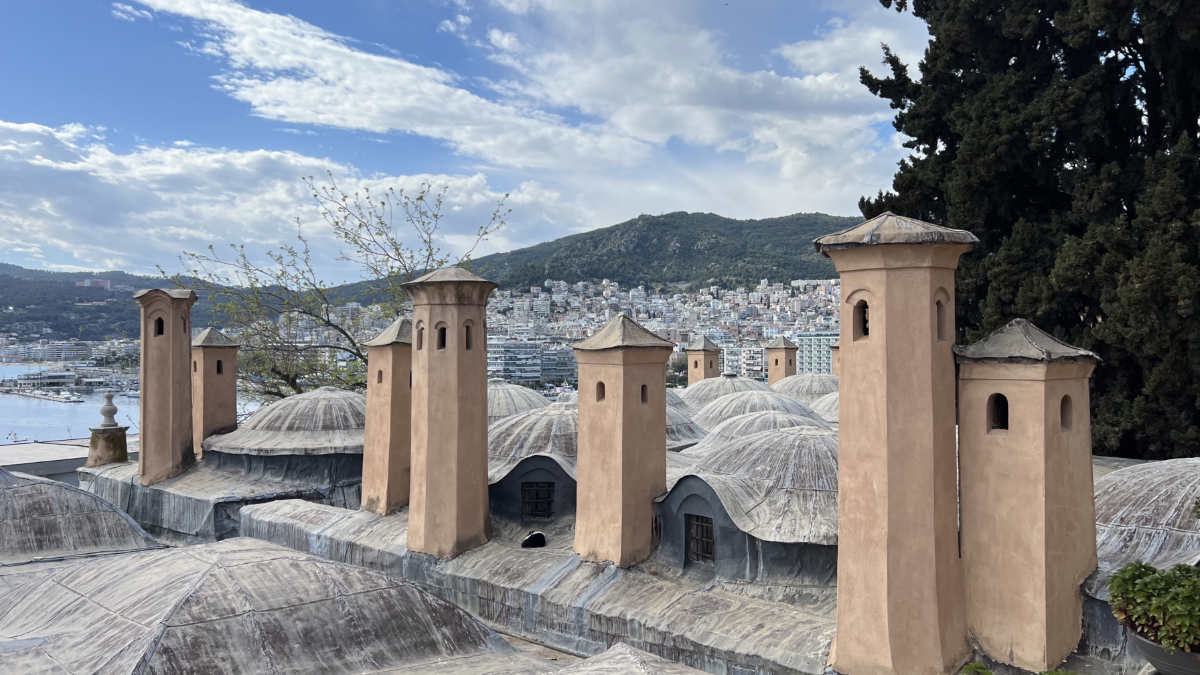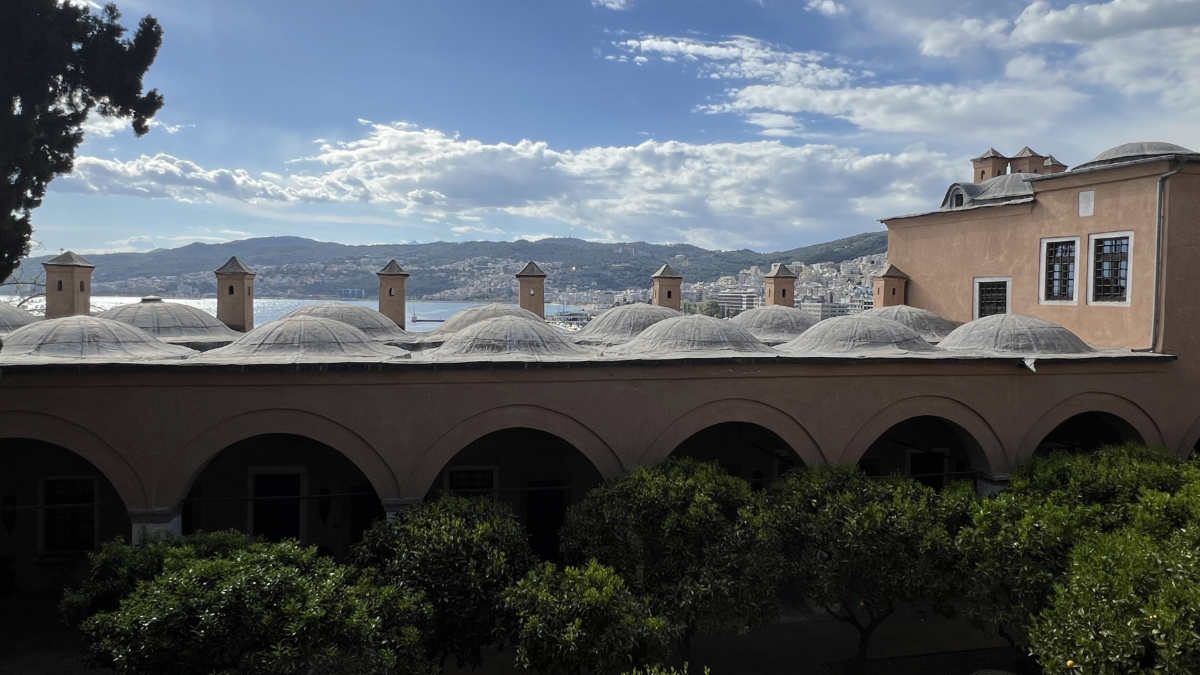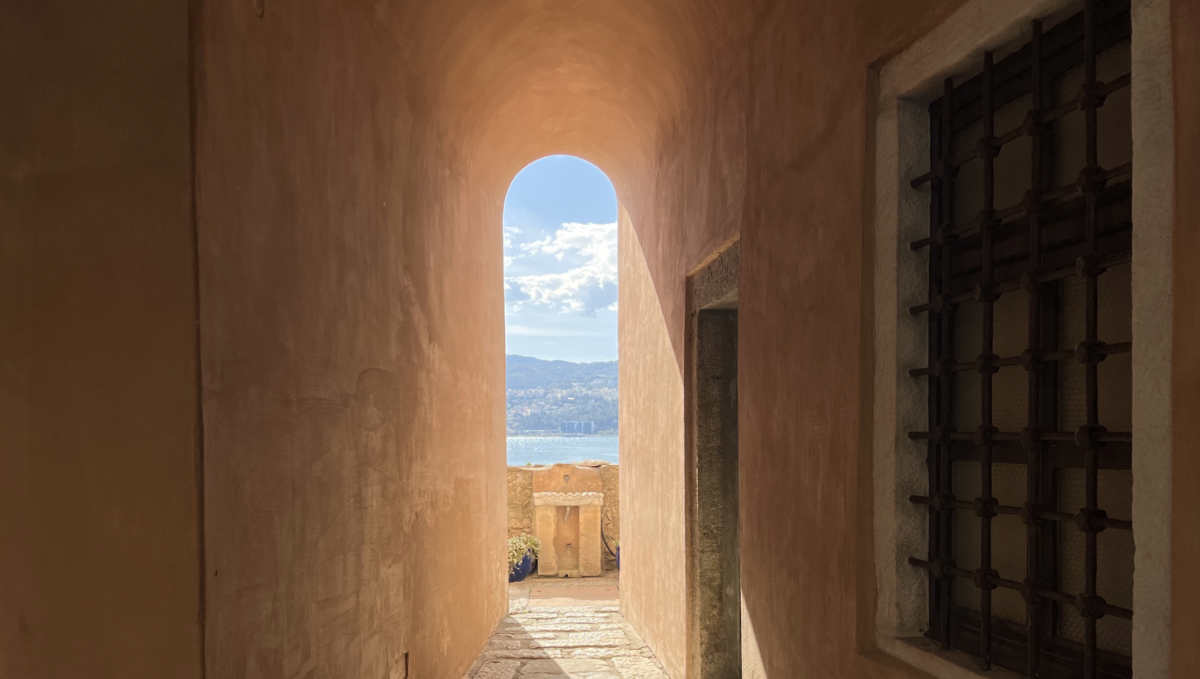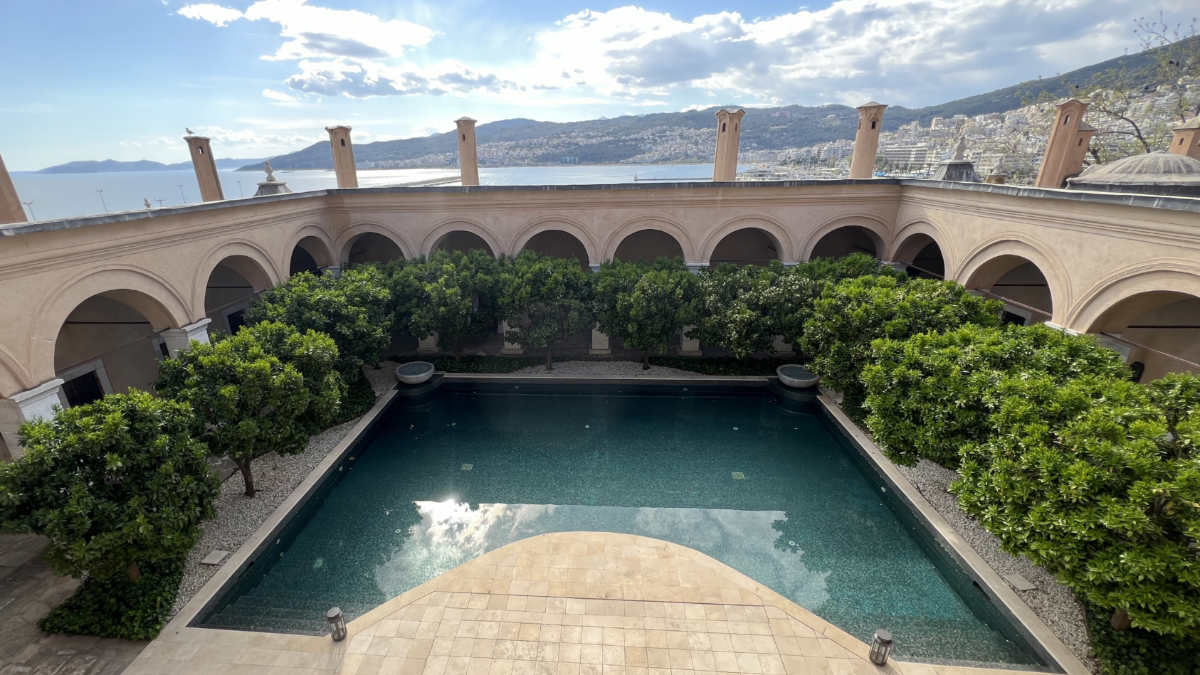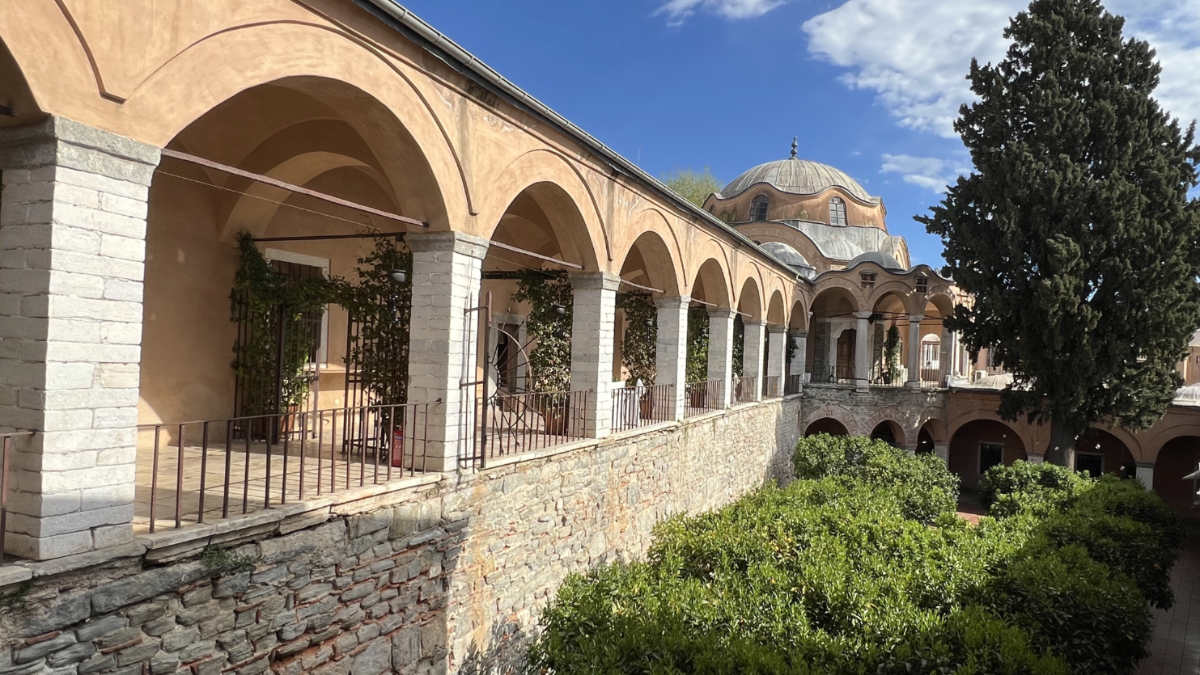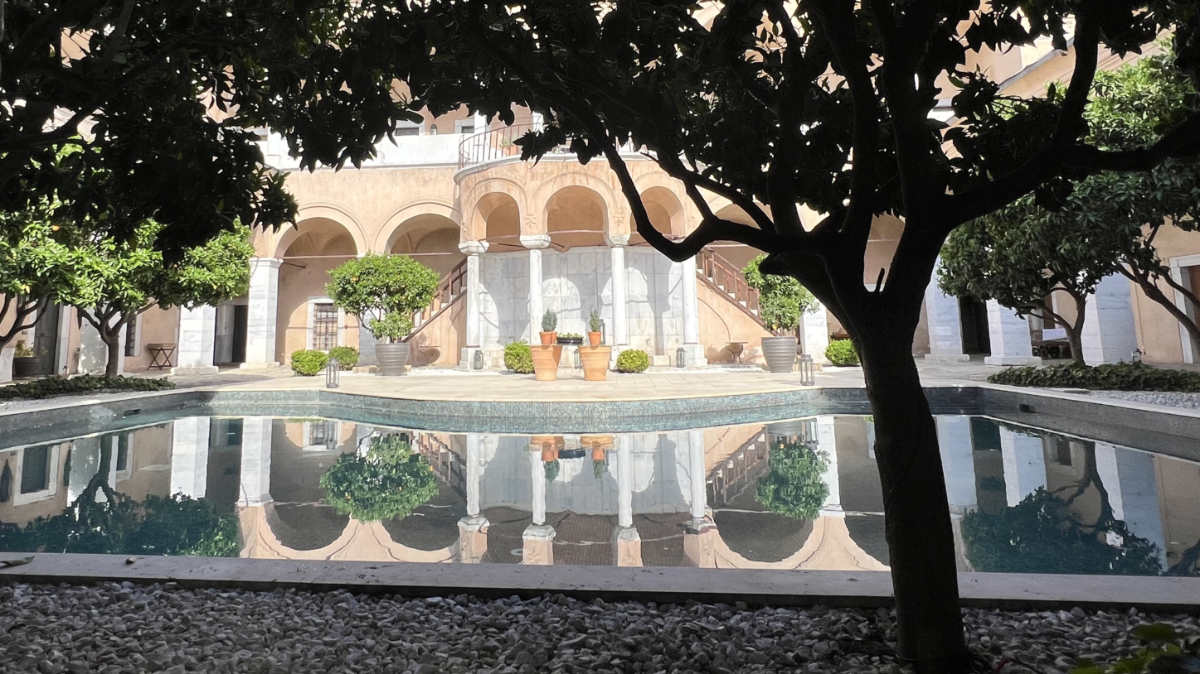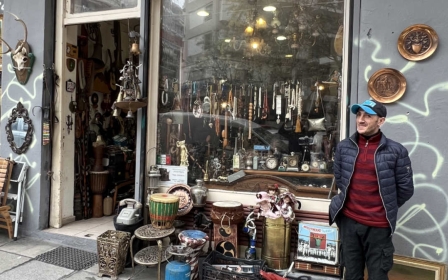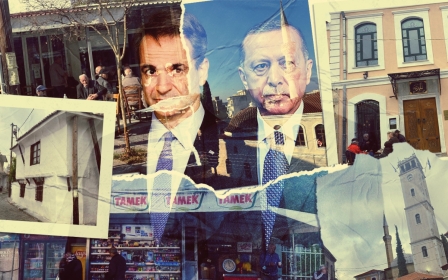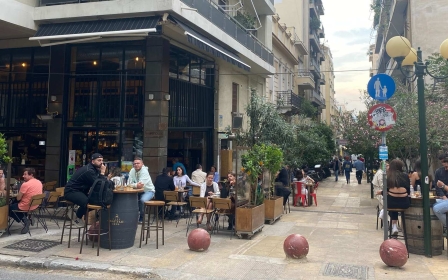'The last stop of Europe': In a remote Greek port, live like a pasha in an Ottoman palace
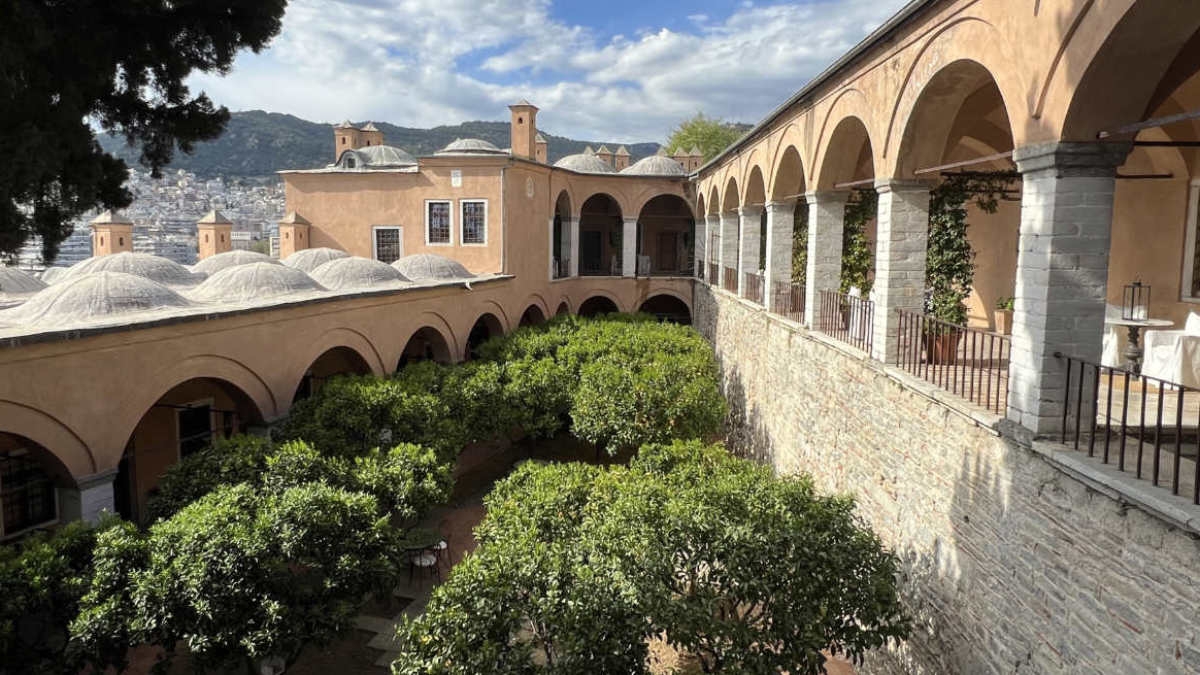
In a secluded corner of northern Greece, a peninsula protrudes into the Aegean, lurching over the bustling seaport of Kavala and looking south to the forested island of Thasos.
Perched on its jagged western edge, is a grand ochre palace with domed lead roofs, sprawling porticos, and placid pools surrounded by gardens.
The complex was built 200 years ago by Mohammad Ali Pasha, a tobacco merchant turned Ottoman governor turned international statesman who founded modern Egypt, and a dynasty that ruled the Arab world’s most populous state well into the 20th century.
At the peak of his power, Mohammad Ali’s armies waged war from modern-day Saudi Arabia to Greece’s Peloponnese.
I flew from Athens to Thessaloniki, the capital of Greece’s Macedonia region, and made a two-hour car journey further east along the revamped Roman-era highway, Egnatia, to visit the baroque Ottoman complex Mohammad Ali built in his birthplace.
New MEE newsletter: Jerusalem Dispatch
Sign up to get the latest insights and analysis on Israel-Palestine, alongside Turkey Unpacked and other MEE newsletters
The complex once housed two madrassas, student dormitories, a Quranic primary school, hammam (bath house), a prayer hall, and a soup kitchen, all arranged around three courtyards.
Today, it has been refashioned into a hotel - a bastion of opulence, in an otherwise hardscrabble Balkan port town - called Imaret, a play on the Turkish word for soup kitchen.
The discreet hotel is all the more intriguing because it is owned by the Egyptian government through the state’s Waqf, an Islamic religious trust, as a holdover of the Mohammad Ali dynasty's control of Egypt.
When I arrive on Poulidou Street in the old Muslim quarter of Kavala, Imaret appears sealed tight. I try knocking on several doors but no one answers.
Outside, black SUVs with licence plates from Bulgaria and Turkey battle for control of small cobblestone streets. Tourists at a nearby taverna dig into platers of kebab garnished with paper-thin slices of onions and tomatoes. A ferry in the port below sounds its horn for Thasos.
After a 20-minute wait, my phone rings. The caller instructs me to walk to a double glass door up the road. Before crossing the threshold, I see a plaque bearing an inscription in Arabic.
Imaret’s creator is Anna Missirian, a Kavala native whose eye for fine antiques and Ottoman history is the driving force behind the hotel.
Before my trip, friends in Athens cautioned me about Missirian, who has earned an uncompromising reputation.
Deep-pocketed Imaret guests - who shell out as much as 1,000 euros a night to stay at the hotel - have been kicked out for simply speaking too loud. Other visitors claim to have been turned away at the door for violating an unwritten dress code.
I’m whisked through vaunted antechambers to meet Missirian, who is standing to greet me, stylishly dressed in a silk scarf and chic blue reading glasses.
Before we delve into Imaret’s history, I decide to tackle the allegations straight on.
Deep-pocketed Imaret guests have been kicked out for simply speaking too loud. Other visitors claim to have been turned away at the door for violating an unwritten dress code.
“I don’t apologise,” says Missirian, reclined on the terrace and clutching an E-cigarette.
“I’m not impressed by someone's ability to spend, but by the qualitative way they choose to enjoy special moments... This isn’t a hotel, it’s sacred ground.”
The view from Imaret's terrace is a breathtaking mix of refined Ottoman grandeur and contemporary Balkan grit.
Across the bay, Kavala’s new town unfurls into an amphitheatre of concrete apartment blocs and rusty water tanks that stretch from the Aegean Sea to the foothills of Mount Symvol0. But we are cocooned in another world.
Chimneys poke up from the students’ dormitories turned hotel rooms. Imaret's distinct lead roof is comprised of more than a dozen small cupolas whose humps resemble a reptile's shell, evoking Ottoman artist Osman Hamdi Bey’s painting The Tortoise Trainer.
The swimming pool below is guarded on the perimeter by tall, solemn porticos and orange trees. At the head of the pool is an old marble washing station. It’s so silent that for a moment, I can imagine the scholars and tarboosh-wearing students that once used to roam these grounds making their way to midday prayer.
As a tenant of the Egyptian government, Missirian has run the gamut of rulers in Cairo. She enjoyed good ties with the Mubarak family, her connections to them helped her secure a 50-year lease on the hotel. But she had difficulty with Mohammad Morsi’s Muslim Brotherhood government, she says. “But my lease is legal and ironclad.”
But I've come to Imaret to discuss more than just its architecture and rich history. Missirian’s eyes sharpen when I describe Kavala as part of a wider Middle East, encompassing the broader Eastern Mediterranean.
“Precisely,” she says, waving her e-cigarette in the air. “Kavala is an important crossroads. That is what makes the region so intriguing and fascinating".
Mohammad Ali leaves his mark
Mohammad Ali Pasha was born in Kavala in 1770 to a Turkish-speaking family with roots in the Central Anatolian city of Konya.
Had he stayed in this Ottoman entrepot, home to Greek Orthodox Christians, Jews, Armenians, and Muslim Turks, he may have passed through life as an illiterate, middling tobacco merchant. Instead, he was recruited into a force by Sultan Mahmud II to expel Napoleon’s army from Egypt.
Combining a shrewd judge of character and ruthlessness, he quickly rose to power in Egypt. In 1805, he was named governor of the Ottoman pashalik. At Cairo’s citadel, he orchestrated a slaughter of the Mamluks—the elite class of Muslim soldiers descended from slaves from the Caucasus, Anatolia and Balkans, who ran roughshod over Egypt, clashing with the Ottomans.
'An Eastern Mediterranean identity is not only seen as compatible with a European identity, but even more valuable'
- Mark Mazower, The Greek Revolution: 1821 and the Making of Modern Europe
After consolidating power, Mohammad Ali began Western-style reforms that laid the foundations for the modern Egyptian state that exists today. But he didn’t forget Kavala.
The first wing of Imaret was built in 1813. It housed a library, a mekteb, or Islamic primary school, a lecture hall and 60 small rooms for students. Imaret’s expansion would dovetail with the military prowess of Mohammad Ali’s army.
In recognition of his role in fighting Wahhabis in today’s Saudi Arabia, Sultan Mahmud II issued a firman, or decree, in 1813 giving Mohammad Ali ownership of the island of Thasos and its tax revenue.
With those funds, Mohammad Ali’s endowment to his native city grew. In 1820, he built a muhandasine, or engineering school, and a medrese, Islamic seminary, around a second courtyard. The soup kitchen and third courtyard were completed by 1821.
Khaled Fahmy, the preeminent historian of Mohammad Ali Pasha, said that Imaret is integral to understanding the aura of one of the Middle East’s “subtlest and most complex leaders,” who fashioned himself an Ottoman Napoleon.
“Mohammad Ali was telling Kavala - his hometown - that he had made it in the Ottoman world and was here to stay,” said Fahmy, author of Mehmed Ali: From Ottoman Governor to Ruler of Egypt.
“He was doing what Pashas do. They do charity work. They leave their mark.”
Mohammad Ali Pasha’s fate was intimately tied to Greece, which during his lifetime was politically and culturally a part of the Levant, a region that today is associated with the Arab world, but has traditionally encompassed the entire Eastern Mediterranean.
When the Greeks revolted against the Ottomans in the 1820s the Sultan called on Mohammad Ali to violently subdue them, first on Crete in 1822, and then on the mainland Peloponnese two years later.
Mohammad Ali’s son, Ibrahim Pasha, waged a scorched-earth campaign against the revolutionaries, slaughtering villagers and shipping thousands of Greeks off to slave markets in Cairo. His name is still synonymous with brutality in popular Greek history.
But Mohammad Ali was an unwilling warrior.
“He was perceptive enough to see the Greek revolution as a lost cause for the Ottomans,” Fahmy said.
He lobbied the Sultan to reach a negotiated settlement with the Greeks—and their European backers. Despite his concerns, Mohammad Ali was unable to extricate himself from the conflict.
The blow to the Ottomans that he foresaw came in 1827 at the Battle of Navarino, when Ibrahim’s fleet was destroyed by the British, French and Russian navies.
The Greek revolt was a watershed moment for the birth of nation-states. The century it ushered in saw the collapse of Christian monarchies in Europe, as much as it did the slow death of the Ottoman Empire. The Greek war was also a turning point for Mohammad Ali and Egypt.
'Within 25 kilometers of Imaret, the Muslim world begins. Kavala is where Europe meets the East'
- Anna Missirian, Imaret
"After Navarino, he began to think of himself as a Mediterranean ruler whose interests, especially commercial, were tied to Europe. He decided never again to collaborate with the Sultan,” Fahmy said.
Mohammad Ali prepared his army for a conquest of Syria setting the stage for a direct clash with Constantinople. With Ibrahim once again in command, Mohammad Ali's modernised troops inflicted a humiliating defeat on the Ottomans, sweeping across Syria and winning a decisive battle at Konya, in Central Anatolia.
European powers intervened to prevent the collapse of the Ottoman Empire, negotiating a settlement that guaranteed Mohammad Ali’s family heredity rule in Egypt, an agreement that lasted until General Gamal Abdel Nasser ousted Mohammad Ali’s great-great grandson, King Farouk, from power in a nationalist coup in 1952.
Kavala remained under Ottoman control, flourishing as a trading port for the tobacco producing hinterlands of Thrace and Macedonia.
By the end of the 19th century, Levantine merchants were building eclectic villas in Kavala, attesting to its wealth and cosmopolitanism.
Imaret functioned as a school and Islamic religious centre right up until Kavala was wrested Ottoman control by Greece in 1912 during the first Balkan War. The soup kitchen ran until 1923.
The edge of Europe
The complex would have fallen into ruin were it not for Missirian, who is married into one of Kavala’s wealthy tobacco families.
She negotiated a 50-year lease on the property with Egypt’s Waqf and after a two-year renovation, opened Imaret in 2004 as a luxury hotel.
Kavala is well off the Greek tourist map, but her discreet hotel has attracted a cult following of discerning travellers.
Pierce Brosnan is a visitor, as are members of the deposed Egyptian royal family, who now reside in Switzerland.
For Missirian, Imaret is proof of Greece's place in the Levant. She believes Kavala is a transition zone between East and West.
To advance her case, she cites the ancient Greek philosopher Thucydides who said that the border of the historic regions of Macedonia and Thrace is the river Strymonas, which places Kavala geographically in the latter.
Thrace's modern borders extend between Greece and Turkey and roughly a third of Greek Thrace’s 350,000 residents are Muslim.
“Within 25 kilometers of Imaret, the Muslim world begins. Kavala is the point where Europe-as we mean in our Western world-actually meets the East,” Missirian said.
Kavala is a city on the edge of Europe.
Like many Kavala natives, Missirian's own roots are in Asia Minor, her family hails from what used to be Constantinople and Smyrna, modern-day Istanbul and Izmir.
Kavala absorbed thousands of Greek refugees fleeing persecution during the collapse of the Ottoman Empire and Greek-Turkish war.
In 1923, the Treaty of Lausanne ended the war and mandated a population exchange that saw 1.5 million Greek Orthodox Christians expelled from modern-day Turkey and 400,000 Muslims from Greece. Greek refugees sheltered at Imaret up until the 1960s.
Mohammad Ali himself lived in a time when borders and identities were more fluid.
The Kavala native arrived in Egypt at the age of 30. He had little connection to the Egyptian fellahin, or peasants, that he ruled over and never learned Arabic.
The cosmopolitan world of Kavala was Mohammad Ali’s millieu. Even as he waged war on the Greeks on behalf of the Sultan, he welcomed Greek traders, artisans, merchants and sailors into his realm.
I travelled to Imaret to see the echoes of Mohammad Ali’s world in this region today.
The borders that once defined the Eastern Mediterranean are breaking down; driving a debate over migration in Europe, but also leading to massive flows of capital from Middle Eastern investors into cities like Athens.
Meanwhile, the Eastern Mediterranean and Black Sea are once again in play on the geopolitical chessboard, with wars raging in Ukraine and Gaza.
The former conflict, and Turkey's growing independence from the West, has put northeastern Greece on the radar of policymakers in Washington and Brussels. The port of Alexandroupoli, an hour and a half drive to the east of Kavala, is now a hub for US weapons travelling to Ukraine.
Changes are felt below the surface in this provincial seaport. Some locals are worried about an influx of Bulgarian and Turkish tourists altering the local fabric of their city.
The Ottoman’s centuries-long rule over Greece is still widely remembered as a time of occupation, but a new generation of historians and academics are re-examining Greece’s place in the region.
'Chosen to be saved'
“Kavala gives you a different angle to understand the development of Greece. The Ottoman past is much more intimate here,” Mark Mazower, a professor of history at Columbia University, and author of The Greek Revolution: 1821 and the Making of Modern Europe, told me.
“Northeastern Greece used to be the forgotten backwater of a country that saw itself as a bastion of the Cold War West,” Mazower added. “That mentality has changed. The borders have opened. And an Eastern Mediterranean identity is not only seen as compatible with a European identity, but even more valuable.”
Imaret is central to that story. But Missirian is not chasing a fad. At a time when Greek tourism is booming, making Greece one of Europe’s fastest-growing economies, but also raising concerns about unchecked development, Imaret is going against the grain.
'Mohammad Ali was doing what Pashas do. They do charity work. They leave their mark'
- Khaled Fahmy, author Mehmed Ali: From Ottoman Governor to Ruler of Egypt
Missirian has slowly been shrinking the number of rooms at the hotel, “shwaya, shwaya,” she explains using the Arabic word for slowly.
The plan is to condense Imaret’s 19 suites to just 10 in the coming years and impose five-night minimum stays.
Instead of a stopover, Missirian wants Imaret to be a base for guests to explore Thrace and reflect on its Roman, Byzantine, Islamic, and Ottoman history.
Imaret’s restaurant is already an ode to this historic region, with a dinner menu that changes nightly and ingredients sourced exclusively from local Thracian producers.
Missirian makes the rounds at night, holding court in the warmly lit, wood-paneled bar and greeting guests individually.
The restaurant is decorated with sketches of Greek Alexandrian poet CP Cavafy and Greek, French, and Turkish languages waft around the bar. You'd half expect to see the candles casting a dim light on Freya Stark or Lawrence Durrell, musing in the shadow of Mohammad Ali Pasha.
“Imaret isn’t a normal hotel designed to make money, it was chosen to be saved,” Missirian said.
Middle East Eye delivers independent and unrivalled coverage and analysis of the Middle East, North Africa and beyond. To learn more about republishing this content and the associated fees, please fill out this form. More about MEE can be found here.


